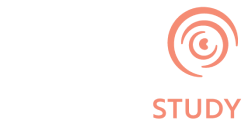Do You Have a Patient with Chronic Kidney Disease (CKD)?
If you have a patient with CKD who has a planned, non-emergent cardiopulmonary bypass (CPB) procedure, the ARTEMIS Study may be of interest.
Find a participating siteStudy Purpose
The purpose of the ARTEMIS Study is to evaluate the safety and efficacy of an investigational medication (ravulizumab) in reducing the risk of cardiac surgery–associated acute kidney injury (CSA-AKI) and subsequent major adverse kidney events (MAKE) in adults with CKD as defined by the inclusion and exclusion criteria.
About the ARTEMIS Study
Study Design
Participants will be randomized in a 1:1 ratio to receive either ravulizumab or the placebo. The investigational medication will be administered only once as an intravenous (IV) infusion.
Study Stages
The ARTEMIS Study includes 4 periods:
Screening
May last up to 28 days prior to surgery. The study team will perform several assessments and procedures to determine whether participants are eligible to participate. There will be 1 visit to the study site.
Dosing
Lasts for 1 day. Participants will be randomized to receive either the investigational medication or a placebo. Participants will receive their assigned study treatment only once via IV at least 1 hour to 7 days prior to their planned surgery.
Primary Evaluation
Lasts approximately 3 months. Includes 2 to 3 visits during the hospital stay and up to 4 to 5 visits to the study site after hospital discharge.
Survival Follow-Up
The participant will be contacted 1 year after they have had their bypass surgery, via telephone by the study team to review their health status.
The investigational medication, ravulizumab, is approved in multiple global regions for the treatment of paroxysmal nocturnal hemoglobinuria (PNH), generalized myasthenia gravis (gMG), and atypical hemolytic uremic syndrome (aHUS). It is now being studied in adults with CKD who are undergoing non-emergent cardiac surgery with CPB. This preoperative treatment with ravulizumab is intended to inhibit the participation of terminal complement in tissue injury prior to exposure to inciting events such as kidney ischemia due to hypoperfusion, atheroemboli, extracorporeal circuit exposure, and kidney and systemic ischemia/reperfusion injury (IRI) at the end of CPB.
Eligibility Criteria
Key Inclusion Criteria
- ≥ 18 to ≤ 90 years of age at the time of consent
-
Planned non-emergent cardiac surgery requiring with CPB for the following procedures:
- Multi-vessel coronary artery bypass graft (CABG)
- Valve replacement or repair; ascending aorta surgery permitted if combined with aortic valve replacement or repair
- Combined CABG and valve surgery; inclusion of single-vessel CABG when combined with valve replacement or repair is permitted
Note: Surgery should be scheduled to occur within 35 days after screening (up to 28-day screening period with randomization and dosing within 7 days prior to CPB).
- Known or apparent CKD (by history, diagnostic results, or reasonable medical assessment made by the investigator and recorded in the medical record) and
eGFR ≥ 20 to < 60 mL/min/1.73m2,
using CKD-EPI equation by sCr or sCysC measurement, obtained by local or central laboratory during the 28 days prior to randomization - At risk for postsurgical kidney events as defined by a minimum STS Calculator Renal Failure Risk Score of ≥ 2.8% assessed at time of screening
Key Exclusion Criteria
- Emergency or salvage cardiac surgery is expected at screening or randomization, as assessed by the investigator
- Single-vessel CABG without valve surgery is planned
- Off-pump surgery is planned (e.g., surgery without CPB)
- Any use of KRT or presence of AKI within 30 days prior to randomization (AKI defined as 1.5× increase in sCr over baseline), except transient (≤ 5 days) Stage 1 AKI after iodinated contrast exposure. Presence of AKI must be assessed within 72 hours prior to randomization.
- Recipient of a solid organ or bone marrow transplantation
- Cardiogenic shock, or hemodynamic instability, including use of intra-aortic balloon pump (IABP) or other temporary cardiac output device, extracorporeal membrane oxygenation, (ECMO), or left ventricular assist device within 72 hours prior to randomization
- Active systemic bacterial, viral, or fungal infection within 14 days prior to randomization
Additional eligibility criteria, according to approved protocol, apply.
